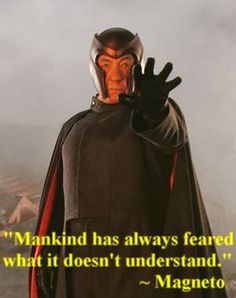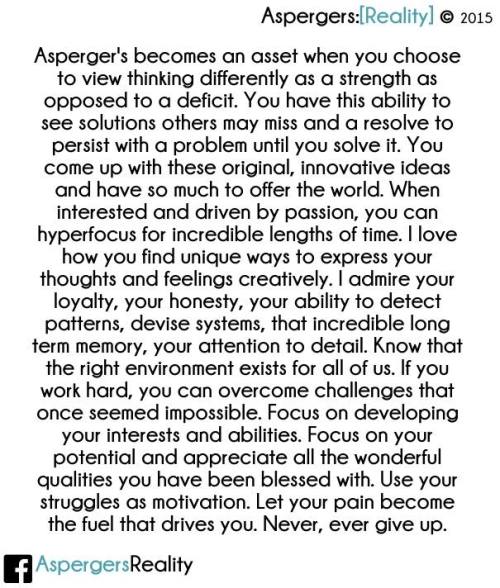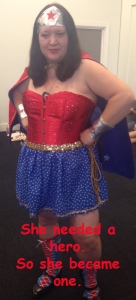I am exhausted. Shattered is the shockingly accurate British term for it. I spent the day at parents’ conference put on by the National Autistic Society here in Swansea. It was brilliant! But between an introverted empath in a room packed full of frightened, hurting and desperate parents and the information overload of almost four hours of lectures and discussion, well, it is no wonder.
Most of today was a review of things that I already knew or resources/strategies that I had been using for years. But I did come away with some new ones and was highly encouraged by the new books out on the subject and the more active PDA Society, but I am getting ahead of myself here.
The one thing that was a light bulb moment for me was the realization that I had just internalized all this and now did it so automatically that I had never actually taken the time to share/educate my new partner or PanKwake’s carer. The moment I got home I apologized to both and am taking steps to correct that oversight.
I was reminded too of a ‘finished’ book that has sat in my documents folder for four or maybe it is five years now. It was to be the second book on this subject…but another brilliant Mom out there beat me to it (good on her). And there are a couple of others out there too.
So the question I am left asking myself is…what now? My personal social experiment that is my daughter is going surprisingly well. Certainly better than expected or the ‘average’. So is it too late? Is it worth it to edit and update it? Re-write woulds perhaps be more accurate. It is not like there are dozens of books out there on the subject even now.
I thought over the next few days/week…I would serialize it as it was written then, perhaps adding a bit of explanation like this or a footnote on progress at the bottom. Get feedback from other parents and see if there is still a need for my voice on this one. So here goes…for what it is worth…
PDwhat?: What PDA is and is not
I hate the term Pathological Demand Avoidance. It holds horrid connotations and does not effectively communicate key characteristics of the condition. To me, it seems to feed into the perceptions of our children as willful little monsters, who are simply trying to manipulate people to get their way. Nothing could be further from the truth. Our children are the victims of the millions of spoken and unspoken demands that are placed on us all each and every day.
In its simplest terms, PDA is an anxiety/panic disorder. In an attempt to control that anxiety and panic, our children and young people exhibit an intense need to control their environment and the people in it. When their sense of control is brought into question, usually by those spoken and unspoken demands that we experience every day at home, school or in society, they can react by trying to manipulate people to avoid them and if that does not work with extreme outbursts/panic attacks/’meltdowns.’ If there were a lot of ‘controls’ in that paragraph, it is for a good reason…that is what this is all about.
Demands bombard us all constantly: put on your shoes, pick up your coat, be quiet, sit still, do your writing, and too many others to even count. For most of us, we learn early the almost unwritten code of being a good girl or a good boy and we accept the rules that society imposes upon us all. But for our children, while they may be aware of the rules and may even remind others of them, rules simply do not apply to them.
It is for me one of the most endearing things about my daughter, that she calls into question all of the stupid and no longer useful should-haves that this world clings to against all reason. It does though irritate that world and sets her and us up for almost constant conflict. Even a short bus ride can result in dozens of broken rules, such as don’t talk to strange, use your indoor voice, don’t ring the bell more than once, etc. People look at us, to which she is blissfully unaware, sometimes rude ones even make nasty comments. At moments like that, it seems to me that my child is the sane one, that the world and those adults, who should know better, have another disease, Pathological Bullshit Demands.
What makes the situation so hard is that almost no one has ever heard of the term Pathological Demand Avoidance…and if we use that term all those nasty images of the ‘naughty’ child would likely only be confirmed in their minds. Truth is that on this one, our kids have it right…society is a nasty, demanding task master with little tolerance for anyone or anything that does not fit its mold. They are labeled naughty, trouble-maker and worse. We are bad parents, lack control and ‘what’s wrong with society today.’
To make matters worse, when we do seek guidance, a different perspective and information to help us help our children, we find very little. There is one website, with a few articles written years ago from a predominantly clinical and educational perspective. There is an online forum, which can be a huge goddess-send on those hard days, but so much of it is from that ‘bad day’ perspective that it can be overwhelming at times. What disturbed me most as I began to research this condition was that I discovered there was only one book written on the condition.
Thirty years since PDA was first recognized and there is only one, ONE, 1 book on it. And that book is written by the clinicians, who first developed the theory, from a very clinical viewpoint. While it has one chapter dedicated to families struggling with this diagnosis and its effects on their family, the book is more appropriate for teachers, social workers and other clinicians. This book is intended to translate that information into everyday language for the families living in the aftermath of that diagnosis and to offer practical real world strategies for living happily ever after with your special child.
The first step down that road is to understand what PDA is and is not.
Pathological Demand Avoidance (PDA) is a developmental condition first noticed in the 1980s by Elizabeth Newson in her work with children at the University of Nottingham. Many of these children had been referred to her team for evaluation, often for Asperger’s, but she noted key differences within this group. Primary among those differences were the ability to maintain eye contact and engage in imaginative play.
Over the next thirty years, she and her team worked with individuals, families, educators and others to define what she called Pathological Demand Avoidance; develop strategies that enable these children and young people to function to the maximum of their abilities; and lobbied for more research, services and support for those with the condition and their families.
At this time, PDA is not recognized as a distinct condition in the DSM-V (Diagnostic and Statistical Manual of the American Psychiatric Association), the bible by which most doctors, psychologists and clinicians diagnose mental health and developmental disorders. PDA is currently only recognized as a distinct diagnosable condition in the United Kingdom, where it was first noted…and even here there is disagreement within the scientific and clinical worlds about the validity of it as a distinct condition. In England, it has been placed on the Autistic Spectrum, even though strategies that work well with autistic children fail to meet the needs of this distinct group.
Given recent changes to the DSM, it is uncertain what the fate of this term or others such as Asperger’s will be. Nonetheless, when many parents discover this term, they have a light bulb moment, where for the first time they feel that someone understands their child, all the boxes are ticked for once. In many instances, where families have sought diagnosis, they were told that their child has atypical autism or even Oppositional Deviant Disorder (ODD). But often the families feel that those are not quite right as well. With PDA, they often find that perfect fit for the first time. The term PDA is useful from that stand point alone.
What then are those distinct characteristics that Newson and her colleagues first noticed? How do they differ from Asperger’s, ODD and other disorders? And most importantly, what are their impacts on your child and you?
Over the years, Newson and her team noticed several key differences between these children and their peers, even others with special needs. Those characteristics include:
- Passive early history in the first year.
- Continues to resist and avoid ordinary demands of life…strategies of avoidance are essentially socially manipulative.
- Surface sociability, but apparent lack of sense of social identity, pride or shame.
- Lability of mood, impulsive, led by need to control.
- Comfortable in role play and pretending.
- Language delay, seems the result of passivity: good degree of catch-up.
- Obsessive behavior.
- Neurological involvement.[1]
Let us begin by examining each of those characteristics in more detail.
Passive Early History
This is one of the characteristics that has a great deal more variability in terms of diagnosis. Newson noted that while many of these children showed early signs in the first year of their life, not all did. For those that did, it was usually in the form of passivity, a lack of interest in the world around them. They were the ‘good babies’ that everyone prays for. They would sleep for extended periods of time, lay or sit quietly for hours and did not interact with the world around them.
But as she noted, not all children with this condition do. My daughter certainly did not. After a brief couple of months of this pattern as a newborn, she began to quickly assert her need to control her environment and me. Without a vocabulary to adequately describe what was bothering her, she had only the shrillest and loudest cry known to man to communicate her discomfort and even as an experienced mother it was not always easy for me to understand.
So do not be misled by this one, if your child did exhibit this trait, count yourself lucky for the calm before the storm. But if he or she did not, don’t think that let’s you off the hook. It is still quite possible that you have been blessed with one of these unique creatures, a child with PDA.
Resists and Avoid Ordinary Demands of Life
If early passivity was a malleable trait, this one is NOT. Avoidance is the key defining feature of this condition as its name implies. What can be confusing is the way in which many of our children do it. They can become so skillful at this that we may not even realize they are doing it. ‘One more minute’, ‘as soon as I’m done with this’, ‘my legs/hands/head hurts,’ and other seemingly reasonable excuses for why she cannot meet your demand. Of course, if these do not work, she may get delightfully imaginative by pulling her arms inside her coat and telling you ‘I can’t do my writing right now, the monsters ate my arms.’ If all else fails, she may escalate to a meltdown by which point the original demand becomes secondary. Anything and everything to avoid even the simplest and most ordinary of demands.
Surface Sociability
This is what can be most confusing for not only the public, but many clinicians and educators. These children appear to be outgoing, kind, friendly, even extroverted unlike most others on the autistic spectrum. My daughter is a prime example of this. The moment that we get on a bus or leave the house for that matter, she is certain to start a conversation with someone. Her favorite is other mothers, who pull their buggies into the pram bay alongside of us (for my fellow Americans…’dem is fancy words for a stroller). She will immediately begin asking questions, some quite personal. She will tell you everything about her and her condition. But it is clearly she who is in control of the conversation and any attempt to change the subject will be met with counter measures to get it back to the topic she wants/needs to discuss.
She is also extremely loving and affectionate, almost inappropriately at times. She will hug me and kiss me and others close to her. But she will also touch, rub against and try to hug virtual strangers. At the pool, she would go up to dads playing with their children and insert herself to the point of ‘jumping’ on these poor men. It is though all on her terms. She is my cat child. By that I mean like most cats, she wants stroked when she wants stroked, and any attempt by you to give them outside of that will result in her running away. If not instigated by her, affection becomes another demand to be avoided.
Another key difference of these children’s sociability is a total lack of understanding of social hierarchy. Adult/child, old/young, queen/pauper. They simply do not recognize the difference or care. For me, it is one thing I adore about Emily. Why is the queen any more special than the homeless man on the street just because of who she was born to? But the flip side of that coin is that Emily does not understand or accept societal strictures of childhood. She has even gone so far as to offer childrearing advice to other mothers on the playground.
Similarly, pride and shame hold little meaning to our kids. Most children take careful note of how others react to their behaviors and respond accordingly. It is a useful parenting tool as most will quiet quickly if you point out that people are looking at you. Such shaming is completely useless with our kids. They simply do not care how people view them…or you. It is one of the reasons that public meltdowns can be extremely draining for the parent of a child with PDA.
Impulsive, Rapid Mood Changes
Parents often say…my child can go from zero to sixty (a hundred, a thousand, a million) in two seconds flat. As mentioned earlier, when all other attempts at avoidance have failed, these children will most often experience a total and complete emotional meltdown. These episodes are perhaps the hardest part of parenting our special children. They are exhausting for us…our children…and just about everyone around us.
I have an obsession (we’ll talk more about those in a minute) with volcanoes. If I had the money and the time, I would go so far as to go back to school to become a volcanologist. I watch every television show I can find on them. One thing that I learned from watching these shows is the mechanism of a volcanic eruption. Magma or melt builds up in reservoirs or pools deep beneath the surface of the volcano until it reaches a certain point. At that point the only way to relieve the pressure is an eruption. It becomes inevitable.
Our children are little volcanoes. They endure and endure and endure…and endure the demands of life until suddenly it all becomes too much for their little minds. And they explode. Violently. Sometimes without warning. And everything and everyone around them takes the full force of the explosion. It is important to remember though that they bear the burnt of their explosions. It is exhausting for them as well as us.
But it is equally as important to remember that those explosions are a natural force. Scientists studying the eco-systems in and around Mount Saint Helens after its explosion discovered that life returned amazingly quickly and in some new and delightful ways. Naturally occurring vegetation that had been replaced with ones introduced by man soon resumed their station at the top of food chain. All was right and beautiful with the world…until the next that magma reaches that point and it all blows…AGAIN.
Yet even between these volcanic explosions, we often notice an impulsivity that is sometimes misdiagnosed at ADD or ADHD (Attention Deficit and Attention Deficit Hyperactivity Disorders). Our kids can lack focus, bouncing from one activity to the next without thought for even safety. The man is walking his dog and our children simply has to pet it. It does not matter that that dog weighs twice as much as they do or that it has muzzle around its snout. Those warning signs that the rest of us would clearly read and take into consideration before acting upon our impulse simply do not register against the overriding need to pet that dog…NOW.
Active Imaginations
Along with their surface sociability this is the other characteristics that is markedly different than other children on the autistic spectrum. In fact, not only are they capable of role play and pretending, they may actually prefer it and use it effectively as another means of avoiding demands. Monsters eating their arms so that they cannot do their writing is just one example.
I remember a phase that Emily went through where she would hide for a moment under a blanket. I would find her and she would throw off that blanket almost like a new baby emerging from its mother’s womb. She would then introduce herself…I’m Emily Six (or five, seven, whatever, we went through several of them during this period). She would tell me that my Emily was dead and she had come to take her place because her mother hurt her, did not feed her or something similar. Until she decided to go back under that blanket, she would not respond to simply Emily, she insisted on being called Emily Six. And she even took on decidedly different characteristics, almost like a split personality disorder. I miss Emily Six sometimes, her behaviors were decidedly easier to manage actually.
This is an extreme example, but even in their day-to-day activities our children are likely to be more creative than their peers, especially others on the spectrum. They prefer music, art, cooking and other crafty outlets to traditional subjects such as science, math or even reading. It makes sense, why read about boy wizards when you can be one, I suppose. This imagination and creativity can be their greatest strength and one that we can build upon as a bridge to the ‘real’ world, but more about that later.
Language Delay
This was one of our first clues that something was wrong with Emily. At two and a half, she was not yet talking. We sought help from our health visitor/nurse only to be dismissed out of hand. She pointed out that as the youngest child Emily did not need to speak. We and her siblings were quick to meet her needs without them being vocalized. But over the years, it remains one of the most obvious symptoms of her developmental delays. It has caused untold stress due to bullying on the playground.
Please do not be confused, our children can and may have an age appropriate vocabulary or even sound like little adults. But their pronunciation may be slurred and even not intelligible, often resulting in increased stress levels.
Another thing to consider is that studies are beginning to show that our children may require additional time to process language. This is important in terms of giving instructions. Our kids may need a couple of more moments to take in and analyze your request before they comply.
One point that Newson and her team made was that they felt language delays were the result of passivity and that the children tended to catch up. From personal experience, I disagree. Almost five years since we first noticed Emily’s delays and the gap between her speech abilities and her peers continues to widen.
Obsessive Behavior
This is one characteristic that our children share with others on the autistic spectrum. Whether it is the need to touch every light post, avoid every crack in the side walk or collect half a dozen different things, you and they may find yourselves controlled by these obsessions.
What’s more, these inanimate objects may take on mythical proportions, may mean more that human contact even. Our apartment/flat is well on the way to becoming a hoarders delight. We have a dozen or more collections: Pez dispensers, Bin Weevils, Trashies, Barbies, stuffed animals and even a five gallon bucket of shells, conches and leaves. None of it can be disposed of…without risking an extremely violent meltdown.
One thing to note is that these obsessions can extend to people. Friendships, which are decidedly one-sided and superficial anyway, are collections. Our children can fixate upon a favorite teacher, a kind neighbor and most especially the empathetic child, who is destined to become their friend.
Neurological Involvement
Fancy words, simple meaning. In addition to PDA, your child’s brain is likely to have other irregularities. At times, it may seem more like an alphabet soup: ADD, ADHD, SPD, ASD. The thing to keep in mind is that a brain that has one problem is also likely to have difficulties in other ways as well. Emily again follows this pattern. In fact, her diagnoses include ADHD, SPD and even epilepsy. They are all entwined as well. When she is having more difficulties with the stress and meltdowns of her PDA, she is also likely to have more seizures.
SPD remember that term. If you have not heard of it already, you are almost certain to hear it again. SPD stands for Sensory Processing Disorder and it is almost always a co-morbidity with anything on the autistic spectrum. In fact, many of stressors of everyday life can be attributed to this condition. In essence, SPD relates to how the brain receives and processes the input from our senses: sight, sounds, smells, tastes and touch, but also movement and pressure on the joints. Our children may be more or less sensitive to these inputs. They may crave constant motion, avoid certain (or even most) foods, smell things that you and others do not even notice, cover their ears around loud sounds and turn their heads away from bright lights. Or the reverse. Or any combination of sensory seeking or avoiding behaviors.
***
So what do you think? Do any (or all) of those sound familiar to you? Did you like me say Yes! when you saw a list of behaviors that almost exactly matches your child? If so, you are not alone. And that is something to remember as well…you are not alone. You may well have felt like it, but I hope by the end of this book you will not anymore. But you may still feel a bit lost, uncertain, wondering now what. So what? A label does not offer the answers. The rest of this book attempts to offer some options from the perspective of a parent, a real life expert, someone living in the trenches of this condition each and every single day. I hope you have found enough to intrigue you so far and that you will join me on the rest of this exciting journey.
[1] Christie, Phil; Duncan, Margaret; Fidler, Ruth; Healy, Zara (2011-11-29). Understanding Pathological Demand Avoidance Syndrome in Children (Jkp Essentials) (p. 13). Jessica Kingsley. Kindle Edition.













 A couple of things to understand about reservoirs:
A couple of things to understand about reservoirs:

